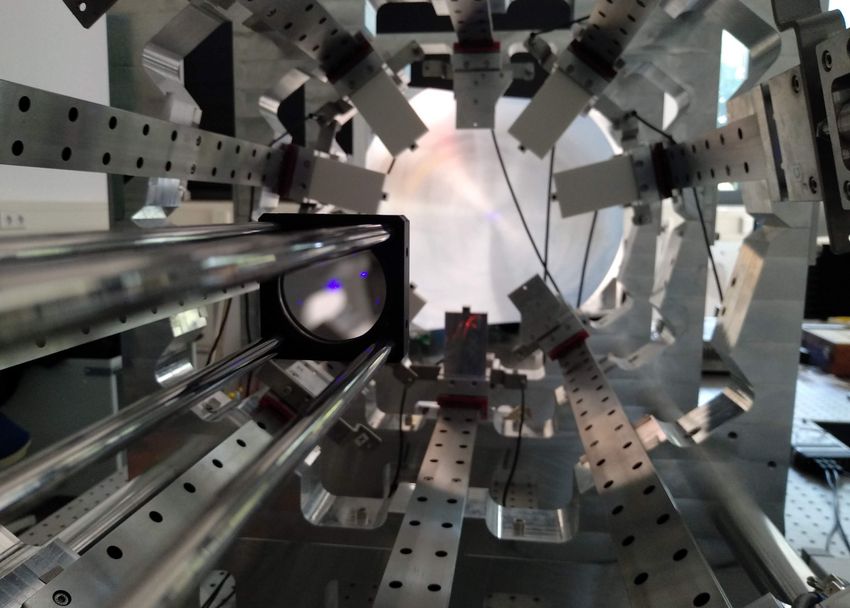Dark matter is one of the greatest scientific mysteries of the universe: From astronomical observations, it is concluded that it accounts for about 26 percent of the total energy content of the universe and is thus about five times more abundant than the "normal" matter we know. Until now, however, this mysterious substance has eluded direct detection.
A joint project in which the DMLab will be involved is the MADMAX (Magnetized Disc and Mirror Axion EXperiment) experiment, which was initiated by researchers at the Max Planck Institute for Physics (MPP). The international MADMAX collaboration was launched at DESY in 2017 and aims to search for axions, hypothetical ultralight particles that could be used to explain dark matter. The idea is that axions could show up at interfaces of different materials in a very strong magnetic field.
The DM Lab involves the CNRS (Centre National de la Recherche Scientifique), DESY, the GSI Helmholtz Centre for Heavy Ion Research and the Karlsruhe Institute of Technology. The goal is to strengthen cooperation between France and Germany and to promote the potential for discoveries.
The DMLab will be established for an initial period of five years. Organizationally, it is a facility of the French IN2P3 (Institut National de Physique Nucleaire et de Physique des Particules) in the CNRS, which will have an additional location in Germany. Ten of the existing IN2P3 sites distributed throughout France are involved in DMLab.
The laboratory will enable French scientists to spend longer research stays of at least one year in Germany. With the help of the funding also pledged by DESY, GSI and KIT, a lively exchange in both directions is expected, which will have a productive impact on all projects in DMLab - and thus also on MADMAX.
